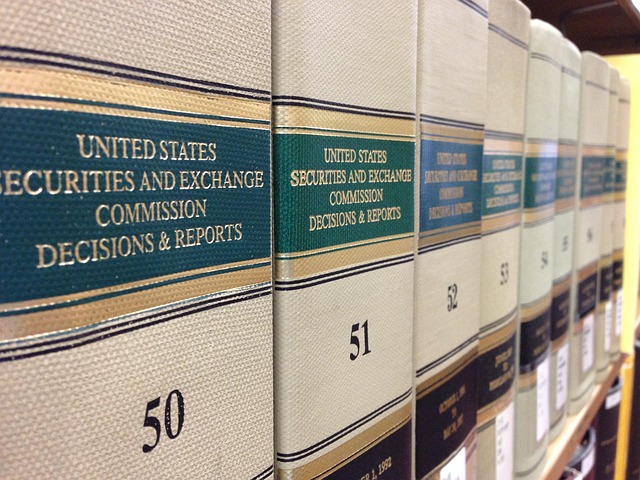Antitrust laws are designed to maintain fair markets by prohibiting practices that restrict trade or stifle growth, ultimately protecting consumers and promoting competition. Convictions require prosecutors to prove proving guilt beyond reasonable doubt, focusing on agreements or conspiracies among competitors that unreasonably restrict trade. Defense strategies involve challenging evidence and legal loopholes while navigating severe consequences, including jail time and fines. The process demands meticulous evidence gathering, forensic analysis, and expert testimony to establish anti-competitive practices and their market impact, with the ultimate goal of complete charge dismissal for both corporate and individual clients.
“Uncovering Antitrust Violations: A Comprehensive Guide explores the intricate world of competition law. This article demystifies the process of identifying and proving such violations, emphasizing the burden of establishing guilt beyond reasonable doubt.
From understanding foundational antitrust principles to unraveling complex evidence strategies, we navigate the key aspects. Learn how to confront common challenges, ensuring a robust legal framework for successful cases.
Mastering these elements is crucial for both enforcers and defendants, as it shapes fair market dynamics and fosters a competitive environment.”
- Understanding Antitrust Laws and Their Purpose
- Elements of Proving an Antitrust Violation
- The Standard of Proof: Beyond Reasonable Doubt
- Strategies for Gathering and Presenting Evidence
- Common Challenges in Antitrust Cases and Overcoming Them
Understanding Antitrust Laws and Their Purpose

Antitrust laws are designed to promote fair competition in the marketplace by prohibiting activities that restrict trade or suppress economic growth. These laws aim to ensure that businesses operate within ethical boundaries, fostering a level playing field for all participants. Understanding the purpose of antitrust legislation is crucial when considering cases of potential violation. The primary goal is not merely to penalize companies but to protect consumers and maintain a robust and diverse market.
Proving guilt beyond reasonable doubt is a fundamental aspect of any antitrust violation case. This legal standard requires that prosecutors present compelling evidence demonstrating that a company’s actions have significantly harmed competition in a particular industry. By avoiding indictment under these laws, corporate and individual clients can safeguard their interests while ensuring that business practices remain fair and competitive, ultimately benefiting respective business environments.
Elements of Proving an Antitrust Violation

In antitrust litigation, proving an violation goes beyond merely identifying suspicious behavior; it requires a robust legal framework to establish guilt beyond reasonable doubt. This involves demonstrating several key elements, such as the existence of an agreement or conspiracy among competitors, the purpose or effect of which is to restrict trade unreasonably. Plaintiffs must show that the alleged conduct has caused harm to competition within a relevant market, often measured by examining market share and price effects.
The process delves into intricate details of business practices, including pricing strategies, market allocation, and communication among companies. Legal experts skilled in white collar defense navigate these complexities, scrutinizing evidence and arguments to ensure the respective business interests are represented fairly. This rigorous analysis not only protects the rights of accused entities but also ensures that decisions are based on solid legal precedents and a thorough understanding of the antitrust laws, ultimately upholding the health of the philanthropic and political communities.
The Standard of Proof: Beyond Reasonable Doubt

In antitrust violation cases, proving guilt beyond reasonable doubt is paramount. Unlike civil cases where the burden of proof is lower, criminal proceedings demand a higher standard. This is because the consequences for defendants are far more severe, potentially including jail time and substantial fines. The “beyond reasonable doubt” standard requires prosecutors to present compelling evidence that leaves no reasonable alternative explanation other than the guilt of the accused. This threshold ensures fairness by safeguarding against wrongful convictions.
In navigating these complex cases, a robust defense strategy is crucial. White collar defense attorneys employ various tactics to avoid indictment, such as challenging the admissibility of evidence, scrutinizing witness testimonies, and leveraging legal loopholes. However, they must tread carefully; white collar and economic crimes are taken seriously by prosecutors due to their significant impact on the economy and consumers. The challenge lies in presenting a compelling defense without undermining the strength of the prosecution’s case.
Strategies for Gathering and Presenting Evidence

In antitrust violation cases, gathering and presenting evidence is a meticulous process designed to prove guilt beyond reasonable doubt. The first step involves thorough documentation of all relevant business activities, including market behavior, pricing strategies, and internal communications. This includes sifting through financial records, emails, meetings minutes, and any other documents that can shed light on the alleged anticompetitive practices. A robust white collar defense strategy relies on these detailed records to construct a coherent narrative that dispels any suspicion of misconduct.
For his clients facing antitrust charges, an experienced legal team plays a pivotal role in interpreting complex data and transforming it into compelling evidence. This involves leveraging advanced analytical tools to identify patterns and anomalies indicative of antitrust violations. By presenting this evidence in a structured, logical manner, the defense can counter claims and argue for the innocence of their clients, thereby addressing white collar and economic crimes allegations effectively.
Common Challenges in Antitrust Cases and Overcoming Them

Antitrust violation cases often present unique challenges due to their complex nature. One significant hurdle is establishing guilt beyond a reasonable doubt, especially when dealing with intricate economic behaviors and market dynamics. To overcome this, legal teams must meticulously gather evidence, employing forensic analysis and expert testimony to illustrate anti-competitive practices. By presenting a comprehensive picture of how these actions have affected the market, they can persuade juries or judges that the defendants’ behavior is not merely questionable but illegal under antitrust laws.
Additionally, these cases may involve both corporate and individual clients, complicating the legal landscape. However, a well-structured strategy can address this challenge. Comprehensive investigations and transparent communication ensure that all parties understand their roles and potential outcomes. This approach facilitates the development of a robust defense, aiming for a complete dismissal of all charges across the country, where such cases often have nationwide implications.
In navigating complex antitrust violation cases, understanding the intricate web of laws and their purpose is paramount. Mastering the elements of proof, adopting robust strategies for evidence gathering and presentation, and overcoming common challenges are essential steps towards securing justice. Ultimately, the goal is to prove guilt beyond reasonable doubt, ensuring fair competition and protecting consumers in today’s economic landscape.






